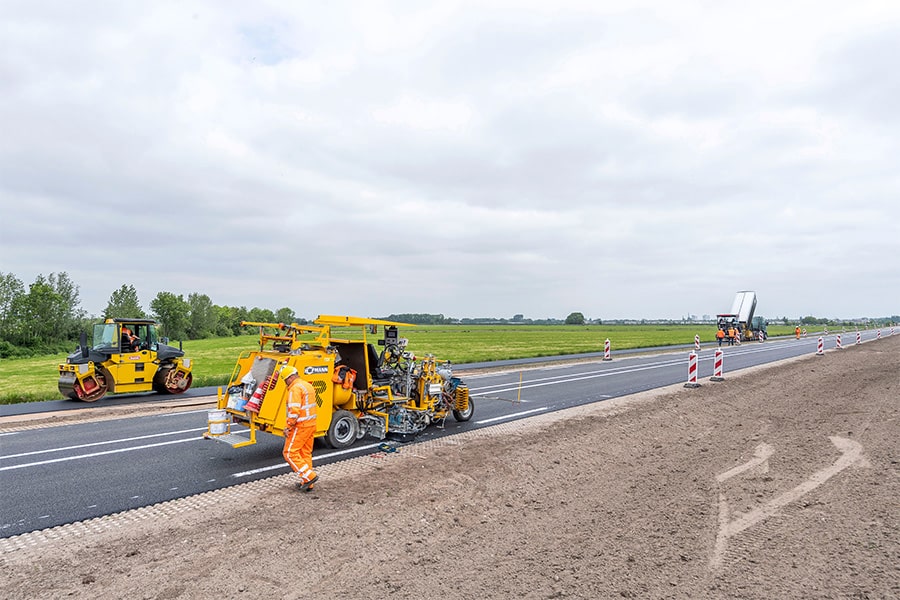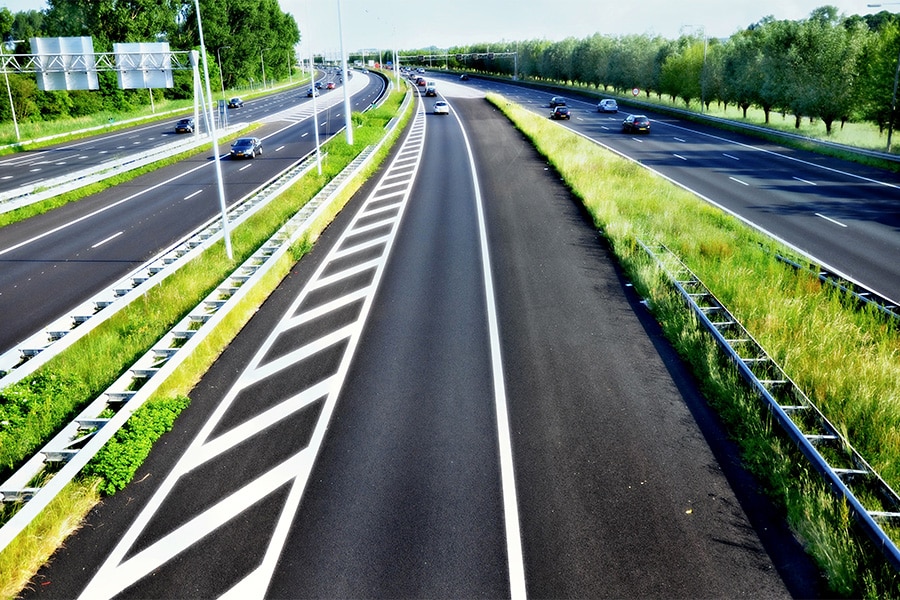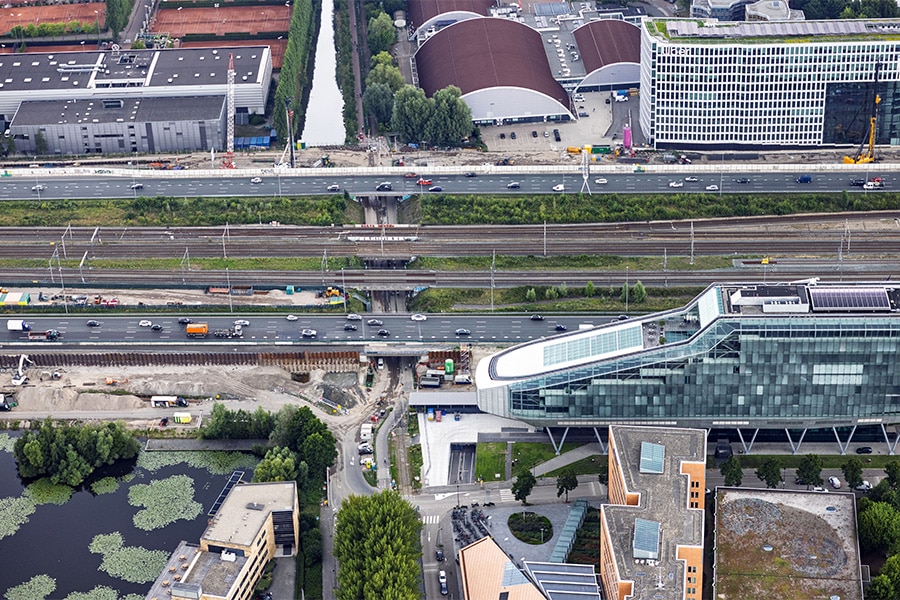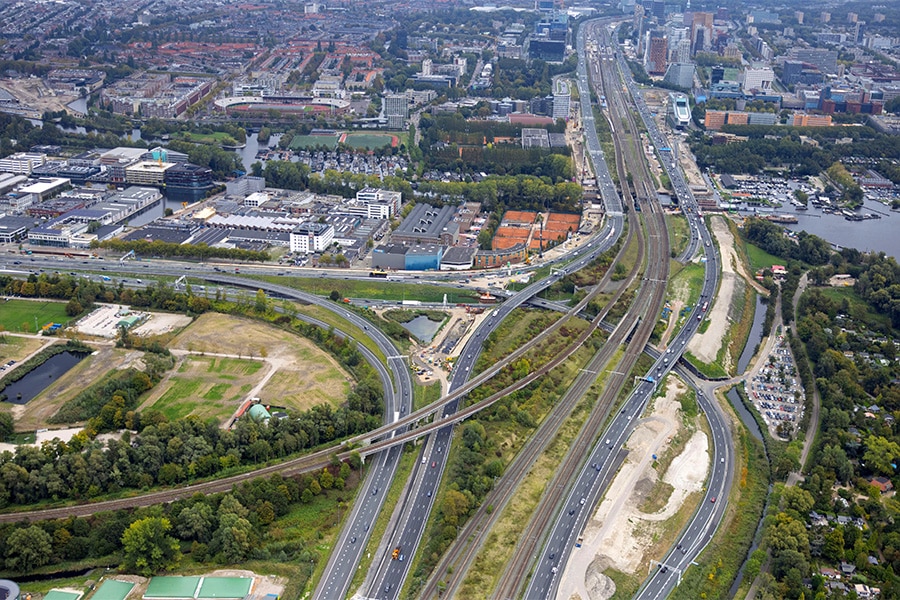
Building sustainable roads together
The Vakgroep Bitumineuze Werken (VBW) of Bouwend Nederland promotes the applications of asphalt. Like the rest of the Netherlands, the asphalt industry is also working on sustainability. The introduction of Warm Mix Asphalt is an important milestone in this, but it does not stop there. Work is even in progress on a 'Delta Plan Sustainable Road Pavement' to build sustainable roads together. An interview with Stefan de Munck, chairman of the Bituminous Works Section.
As an industry, and therefore also from the VBW, we are busy working on sustainability, both on the production and processing side, begins De Munck. "In 2021, we jointly expressed the ambition to phase out Hot Mix Asphalt and switch to Warm Mix Asphalt. We've been busy with that for the past year and a half to two years, working with clients such as the Department of Public Works, provinces and municipalities to take that further and to set up a shortened acceptance process for it. Since then, all production units throughout the country, the asphalt plants, are taking steps or have already switched completely to Warm Mix Asphalt."

Getting past the cold feet
Since the middle of 2024, we have seen more and more contracts call for Warm Mix Asphalt. "A nice development," De Munck believes. "Serious steps are being taken on all sides, both by producers and clients from small to large. And we as a sector can be quite proud of that. It shows once again that we really need each other. We can want to make our mixtures more sustainable, but clients also have to go along with us. Although Hot Mix Asphalt will be the standard by January 1, 2025, this does not mean that we can phase out Hot Mix Asphalt completely. That has to do with the sometimes long acceptance processes for specific situations. What we can at least say is that the cold feet for applying Hot Mix Asphalt have at least been removed, both among clients and contractors."
Delta Plan
And now move on! "Because, just lowering the temperature won't get us there," De Munck states. "Thus, steps are now being taken toward the National Platform for Sustainable Road Paving. The initiative stems from a session during our Asphalt Day a few years ago. In it, our members gave a presentation with the final conclusion that it would be nice if we could set up a kind of delta plan for sustainable road surfacing. To make the sector structurally sustainable, close cooperation between governments, companies and knowledge institutions is necessary. The National Sustainable Road Pavement Platform (NPDW) brings together clients, contractors and knowledge institutions to pool knowledge and together choose the best approach. The Delta Plan Sustainable Road Paving forms the basis for this and describes concrete goals and steps to reduce CO2 emissions, stimulate circular use of materials and promote innovation."
Some certainty
On the asphalt production side of things, the VBW is also in constant dialogue to make bigger and faster strides. "The goal is to produce our mixtures with as few emissions as possible. For example, we are looking at other production methods to reduce gas consumption. Think about applying hydrogen and electric heating. Compare to the steps taken to introduce Warm Mix Asphalt. We also realize that it involves major investments. As an industry we can and want to make those, but with some certainty that we can apply them in the coming years. That is why we are also involving clients in these developments to get a good idea of what the market will look like in the coming years."
Young blood
Warm Mix Asphalt is certainly not the end point, according to De Munck, but only an intermediate step. "We are eventually moving to mixtures that can be produced at an even lower temperature. Never mind that by moving from Hot Mix to Warm Mix, we manage to reduce the carbon footprint by about 20 to 40 percent." But there is still more in the pipeline, then. Finally, De Munck also wants to draw attention to the phenomenon of sustainable employability. "We see that our industry is aging. That's why we are already thinking about how we can get the work done in ten years and especially how we can make our profession sexy again and attract young blood. To this end, we have set up various committees within the VBW that conduct talks with training institutes, such as the SOMA College in Harderwijk. Bouwend Nederland is also working hard to bring our industry to the attention of both students and their parents. So we are anything but sitting still."




